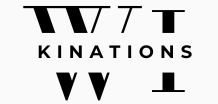
As we look ahead to 2025, SEO continues to evolve at a rapid pace, driven by technological advancements, changing user behaviors, and updated search engine algorithms. For businesses and marketers, mastering SEO is not just about keeping up but staying ahead of the competition by adopting the latest trends and best practices. Whether you’re looking to improve rankings, drive more traffic, or increase conversions, understanding what’s shaping SEO in 2025 is essential for success.
Here’s a breakdown of the key SEO trends and best practices you should be focusing on to master SEO in 2025.
1. AI and Machine Learning in SEO: The New Frontier
Artificial Intelligence (AI) and machine learning are transforming the way search engines evaluate content and user experience. In 2025, AI-powered tools will play a central role in SEO strategy, helping businesses optimize their websites more effectively.
- Google’s BERT and MUM: Google’s AI algorithms like BERT (Bidirectional Encoder Representations from Transformers) and MUM (Multitask Unified Model) are already impacting how search engines understand context and user intent. In 2025, these AI models will become even more refined, placing a greater emphasis on content that matches the exact needs of the searcher.
- AI-Driven Content Creation: AI tools like GPT-4 will assist marketers in generating content at scale while ensuring it is highly relevant and engaging for users. However, content still needs to maintain a human touch for the best results, combining automation with creativity.
2. Voice Search Optimization: Preparing for Conversational Queries
With the rise of voice assistants like Siri, Alexa, and Google Assistant, voice search is becoming more integrated into our daily lives. By 2025, voice search is expected to make up a larger percentage of overall searches.
- Natural Language Processing (NLP): Since voice queries tend to be more conversational and longer than text searches, optimizing for NLP is critical. This means using natural, question-based keywords and structuring content to answer specific queries effectively.
- Featured Snippets and Position Zero: Voice search often pulls information directly from featured snippets or position zero results. Optimizing your content for these results by answering questions concisely and clearly can increase your chances of being featured.
3. Mobile-First Indexing and User Experience
Google has been prioritizing mobile-first indexing for several years, and by 2025, mobile optimization will be more important than ever. Since mobile searches account for the majority of internet traffic, having a responsive and fast-loading mobile site is essential for SEO success.
- Core Web Vitals: Google’s Core Web Vitals—metrics that measure user experience, including loading time, interactivity, and visual stability—will continue to be a ranking factor. Make sure your website is optimized for mobile by focusing on these metrics.
- Mobile-Friendly Design: Beyond performance, mobile design needs to be intuitive and user-friendly. Ensure that navigation is easy, content is readable without zooming, and buttons are large enough to click on mobile devices.
4. E-A-T and the Importance of Authoritativeness
Expertise, Authoritativeness, and Trustworthiness (E-A-T) have long been crucial ranking factors, but in 2025, the demand for high-quality, credible content will be even more critical.
- Focus on High-Quality Content: As search engines get better at identifying credible sources, content that is well-researched, fact-checked, and written by industry experts will be rewarded. Aim to create in-depth content that demonstrates your expertise and is backed by authoritative sources.
- Build Your Brand Authority: Engaging with authoritative websites, collaborating with influencers, and gaining backlinks from high-authority sources can strengthen your domain’s credibility and improve rankings.
5. Video SEO: Engaging the Visual Generation
Video content continues to dominate online consumption, and optimizing for video search will be essential in 2025.
- YouTube Optimization: As the second-largest search engine in the world, YouTube is a crucial platform for SEO in 2025. Optimize your video titles, descriptions, and tags with relevant keywords, and ensure that your videos are engaging and high-quality.
- Video Transcripts and Captions: Search engines can index video content more effectively when it’s paired with transcripts or captions. This makes video content more accessible and improves the chances of ranking for specific queries.
- Short-Form Content: With platforms like TikTok and Instagram Reels rising in popularity, creating short-form videos for these platforms is becoming important. Optimize for these formats by focusing on high engagement and sharing content that resonates with users quickly.
6. The Rise of Visual Search
Visual search technology is advancing rapidly, with platforms like Google Lens allowing users to search using images instead of text. By 2025, visual search is expected to become a bigger part of SEO strategies, particularly for e-commerce businesses.
- Optimizing Images and Videos: Use descriptive file names, alt text, and captions for all images and videos to improve your website’s visibility in image search results. Also, use high-quality images that load quickly to enhance the user experience.
- Structured Data: Implementing structured data for product images, such as schema markup, can help search engines understand the content of your images and videos better, increasing the chances of your content appearing in relevant visual search results.
7. Semantic Search and Intent Optimization
Search engines have evolved beyond keyword matching and are now focusing on user intent. In 2025, semantic search will be even more sophisticated, and content that is contextually relevant will be prioritized.
- Topic Clusters and Pillar Content: Organize your website’s content into topic clusters, where a pillar page covers a broad topic, and related blog posts or articles delve deeper into specific subtopics. This helps search engines understand your content structure and improves SEO rankings.
- User Intent Optimization: Understanding the different types of search intent—navigational, informational, transactional, and commercial investigation—will allow you to craft content that aligns better with what users are searching for, increasing your chances of ranking.
8. Sustainability and Ethical SEO
As the global focus on sustainability and ethical practices grows, businesses will be expected to reflect these values in their online presence.
- Green SEO: Search engines may increasingly prioritize websites that demonstrate eco-friendly practices, whether it’s in the form of sustainable content, green hosting providers, or ethical business practices. As a result, environmentally-conscious SEO strategies may become a factor in rankings.
- User Privacy and Data Protection: Privacy-focused updates like GDPR and the upcoming phasing out of third-party cookies will influence how businesses collect and use data for SEO. Ethical SEO will mean respecting user privacy and adapting to the evolving data landscape.
9. SEO and Social Media Integration
Social media platforms are increasingly influencing search rankings, and in 2025, social signals will play a more significant role in how content ranks.
- Social Proof and Engagement: Creating shareable content and encouraging social media engagement will help increase brand visibility and indirectly influence SEO rankings. More social signals, such as likes, shares, and comments, could become a factor in determining content relevance.
- Social Media SEO: Platforms like Instagram, Twitter, and Pinterest are starting to use search features that impact how content is found. Optimize your social media profiles with relevant keywords and post high-quality content that encourages engagement.
10. Link Building in 2025: Quality Over Quantity
While backlinks remain a crucial ranking factor, the focus has shifted from quantity to quality. In 2025, the emphasis will be on obtaining high-quality, relevant backlinks from authoritative sources.
- Focus on Relationship Building: Build relationships with industry influencers, thought leaders, and other websites that can provide backlinks from reputable sources.
- Guest Blogging and Content Collaboration: Guest blogging, content collaboration, and influencer partnerships can also help build backlinks naturally. The key is to ensure that any links you acquire are relevant, authentic, and come from authoritative sources.
Conclusion
As we approach 2025, SEO continues to be a dynamic and rapidly changing field. To stay ahead of the curve, it’s essential to adopt new technologies, focus on user-centric strategies, and continually refine your content and technical optimization efforts. By embracing these key trends—AI, voice search, mobile-first indexing, E-A-T, and more—you’ll be well on your way to mastering SEO and ensuring your website ranks high in search results for years to come. Stay adaptable, focus on high-quality content, and always prioritize the user experience for the best SEO outcomes.
